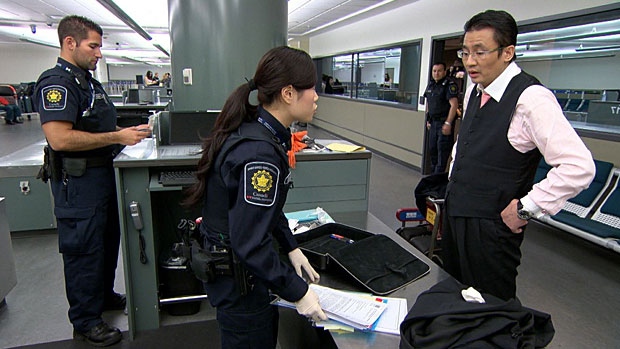Following an evaluation by the Auditor General of Canada late last year, the Canada Border Services Agency (CBSA) has conducted an internal review and made changes to the way it handles data on lookout flags for travelers it considers suspicious. A new report from Public Safety Canada prepared at the behest of the Public Accounts Committee of the House of Commons details the findings of the CBSA review and the measures that the agency is taking to improve the watch list program.
Review Shows a Large Percentage are Out of Date
The review, which ended in March, showed that over 15% of the 117,000 active lookout notices in the CBSA’s electronic database were out of date and should be expunged. In response to this discovery and other concerns raised in the Auditor General’s report, the agency has begun recording examinations of flagged travelers and will now continuously monitor and review active lookouts to ensure they remain current. Training on data tracking and reporting has been expanded, and the computerized search engine has also been upgraded to make the watch list easier and more useful for Border Services Officers (BSOs). Finally, data sharing with partner agencies has been improved as well.

Inconsistencies apparent in CBSA’s Process
Auditor General Michael Ferguson had pointed out inconsistencies in the CBSA’s process for keeping track of what happened when travelers were intercepted based on the watch list. The lookout notices are developed from intelligence about national security risks as well as records of immigration and customs violations. They are intended to allow the apprehension of terror and crime suspects at the border and give BSOs the chance to look more closely at other travelers who may be particularly likely to commit violations. The flags must be up to date and accurate to serve that purpose, and incorrect information could spell trouble for innocent travelers who are wrongly targeted for enhanced searches.
Ferguson said that the CBSA wasn’t doing much better with lookout data last year than it had been in 2007, the last time the issue was studied. He said that the serious nature of the security threats to Canada made it vital to implement the lookouts properly, and poor record keeping meant that the CBSA could not be sure it was doing so, or figure out how to improve the system.
The CBSA is still working on another concern that the Auditor General raised last fall. Ferguson’s report found that airlines often do not provide all of the information they are supposed to about the passengers they bring into Canada. Regulations require that they forward passenger details to the CBSA in advance of arrival so the agency can pre-screen them and determine whether any are subject to a lookout notice or might require additional scrutiny for any other reason. The CBSA already had a plan in place to address this problem, and is currently coordinating with airlines to increase the accuracy and completeness of the passenger data they send it.

 Payment
Payment  My Account
My Account